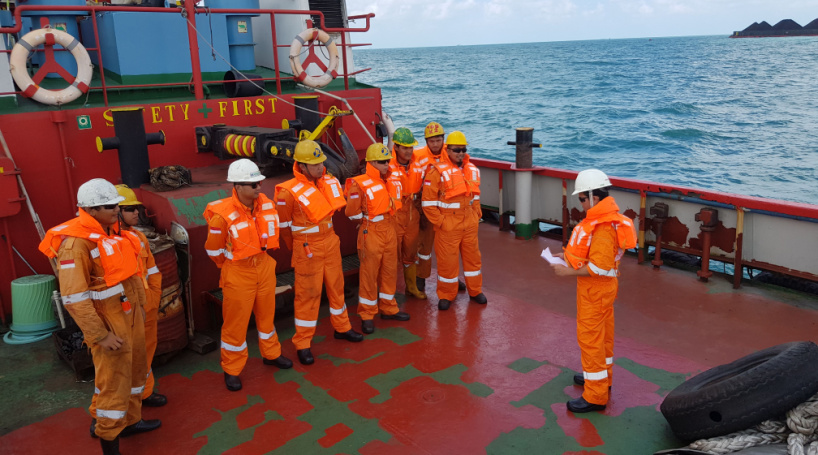Boating is a fantastic way to enjoy the great outdoors, relax, and create lasting memories with friends and family. However, it's crucial to prioritize safety when you're out on the water. Accidents can happen whether you're an experienced boater or a novice, and it's essential to be prepared.
In this blog post, we'll cover some essential boating safety tips, including first aid and fire extinguisher training, to ensure you have a safe and enjoyable time on the water.
Most Common Boating Accidents
It's essential for boaters to be aware of the most common boating accidents and take preventive measures to minimize the risks. Boating accidents can vary widely in nature and severity, but some common types of boating accidents include:
- Collisions - These can occur with other boats, stationary objects like docks or buoys, or even wildlife. Often, they happen due to operator error, lack of proper lookout, or not following navigational rules.
- Capsizing and Swamping - This happens when a boat overturns or fills with water. It can occur due to rough weather, overloading, or uneven weight distribution on the boat.
- Falls Overboard - People falling overboard is a common and potentially deadly accident. It can be due to various factors, including losing balance, rough waters, or sudden boat maneuvers.
- Grounding - Running aground or hitting a submerged object can cause significant damage to the boat and potentially injure passengers.
- Flooding - Flooding can occur due to leaks, equipment failure, or poor maintenance. It can lead to the boat becoming unstable or sinking.
- Fires and Explosions - Engine fires or fuel explosions can happen if there's a fuel leak or if electrical systems are not maintained correctly.
- Carbon Monoxide Poisoning - This can occur when exhaust fumes from the boat's engine accumulate in an enclosed or poorly ventilated area of the boat.
- Drowning - This can result from various accidents on the water, including falls overboard, capsizing, or swamping.
- Inexperience - Many accidents occur due to inexperienced boaters who may not be familiar with safety rules and navigation.
- Alcohol and Drug Use - Operating a boat while under the influence is a leading cause of accidents on the water. Alcohol impairs judgment and reaction time.
Boating Safety Tips to Avoid Accidents
Preparation Is Key
Before embarking on any boating adventure, proper preparation is crucial. Start by checking the weather forecast and ensuring it's suitable for your trip. Strong winds, storms, or rough waters can quickly turn a pleasant day into a dangerous one. Always carry a weather radio or a smartphone with weather apps to stay informed about changing conditions.
Life Jackets Save Lives
Life jackets are non-negotiable when it comes to boating safety. Make sure you have enough properly fitting life jackets for everyone on board. Children and weak swimmers should wear life jackets at all times, and adults should wear them whenever the boat is in motion. Inflatable life jackets are comfortable and easy to wear, so there's no excuse for not using them.
Boat Maintenance
Regular boat maintenance is essential for safety. Ensure your boat is in good working condition before each trip. This includes checking the engine, fuel lines, and electrical systems. Be familiar with the boat's safety equipment, such as navigation lights, anchor, and horn, and ensure they're functioning correctly.
Fire Extinguisher Training
Fires on boats can be especially dangerous due to the confined space and limited escape routes. It's essential to have a functioning fire extinguisher on board and know how to use it. Here's a quick guide to using a fire extinguisher:
- Pull the pin: This releases the locking mechanism.
- Aim low: Point the nozzle at the base of the fire.
- Squeeze the handle: This releases the extinguishing agent.
- Sweep from side to side: Use a sweeping motion to cover the entire fire until it's out.
- Remember the acronym PASS: Pull, Aim, Squeeze, Sweep.
First Aid Kit
Accidents happen, and having a well-equipped first aid kit on board can be a lifesaver. Make sure your kit includes basics like band-aids, antiseptic wipes, adhesive tape, scissors, gauze, tweezers, and any personal medications needed by passengers. Additionally, consider taking a basic first aid and CPR course to be better prepared for emergencies.
Know the Rules of the Water
Just like the road, there are rules on the water that you need to follow. Familiarize yourself with boating regulations, including speed limits, right-of-way rules, and no-wake zones. Ignorance of these rules can lead to accidents or legal trouble.
Designate a Sober Skipper
Boating under the influence of alcohol or drugs is just as dangerous as doing so while driving a car. Impaired judgment and coordination can lead to accidents. Always designate a sober skipper who will stay alcohol and drug-free for the duration of the trip.
Final Thoughts
By following these boating safety tips, including first aid and fire extinguisher training, you'll be better prepared to handle emergencies and ensure that your time on the water is not only fun but also safe for everyone on board. Remember, it's better to be over-prepared than caught off guard when the unexpected happens. So, stay safe and enjoy your boating adventures responsibly!

